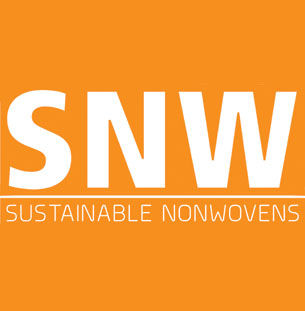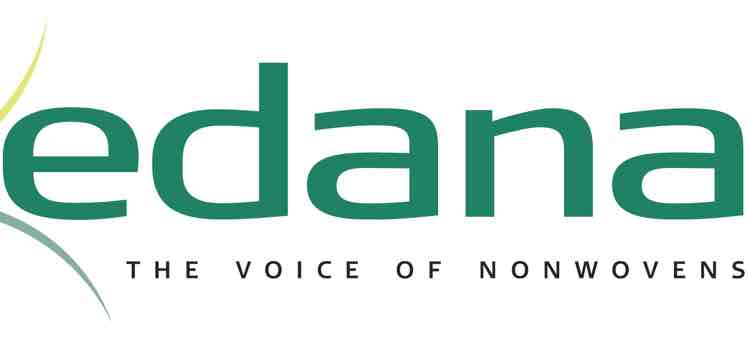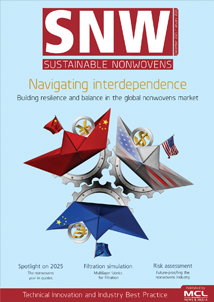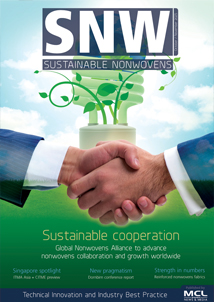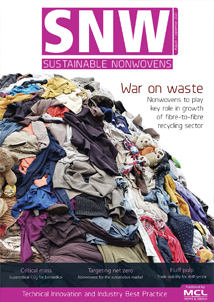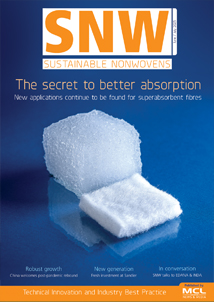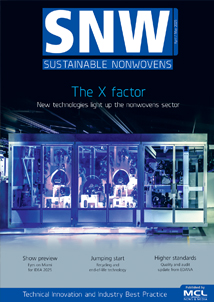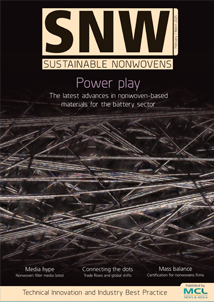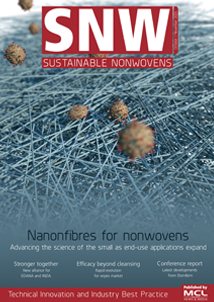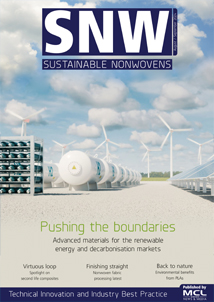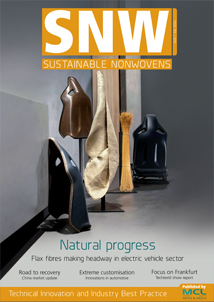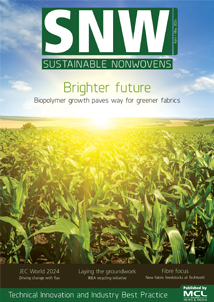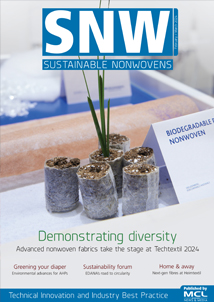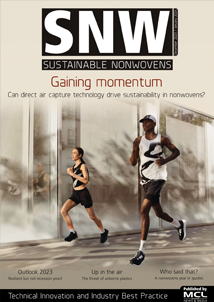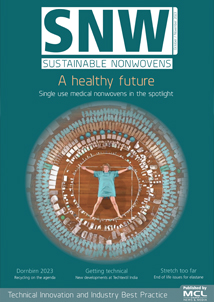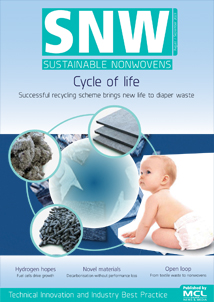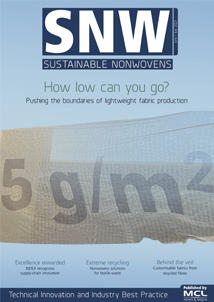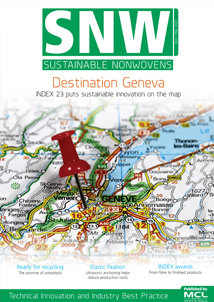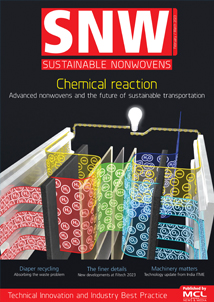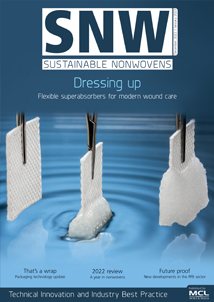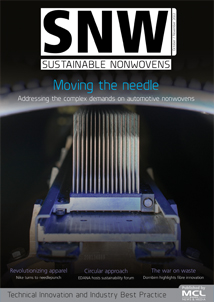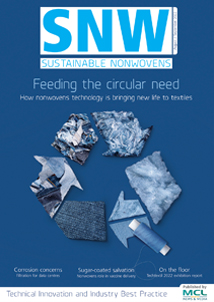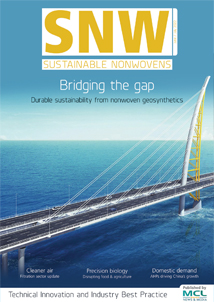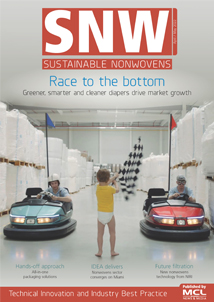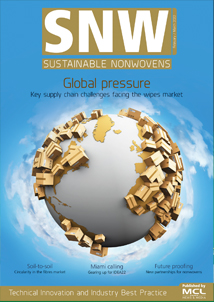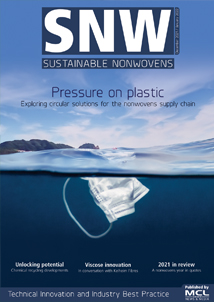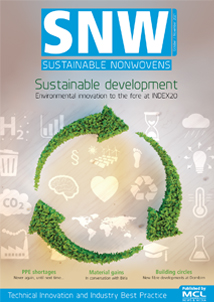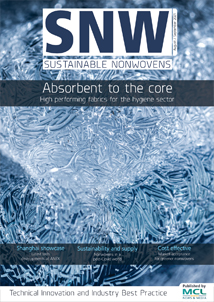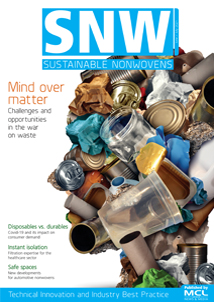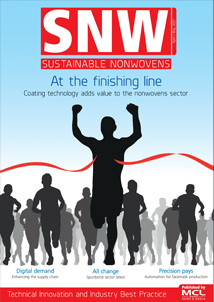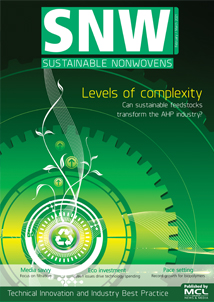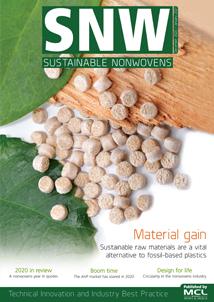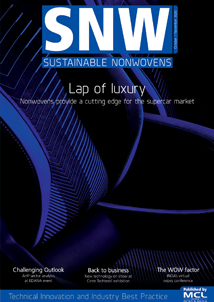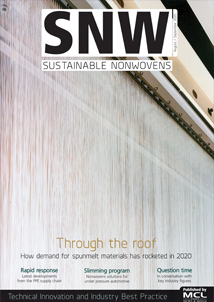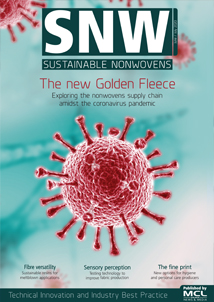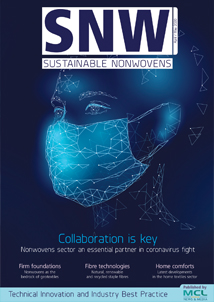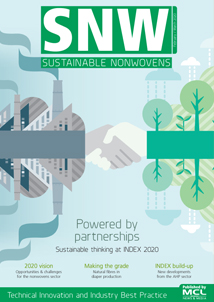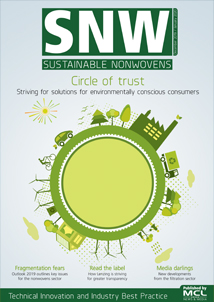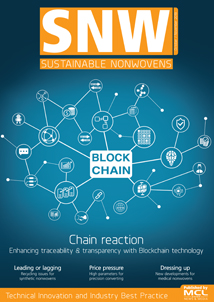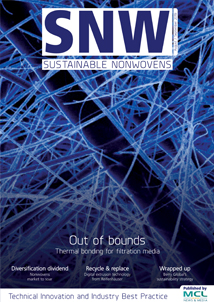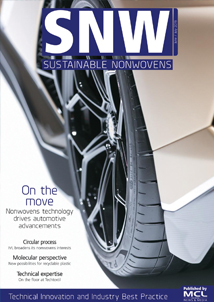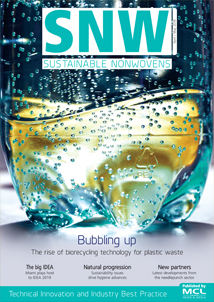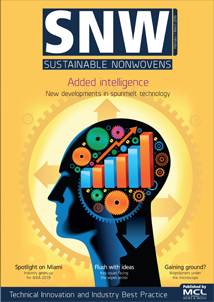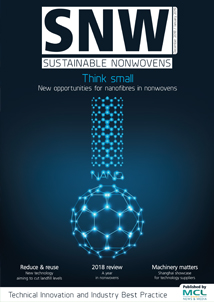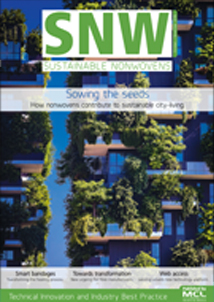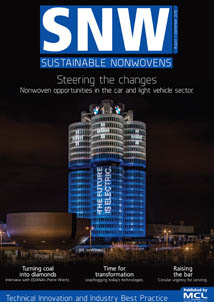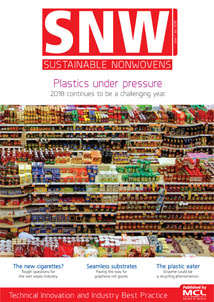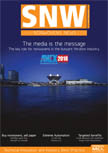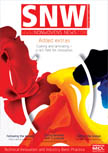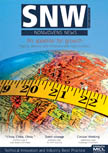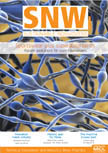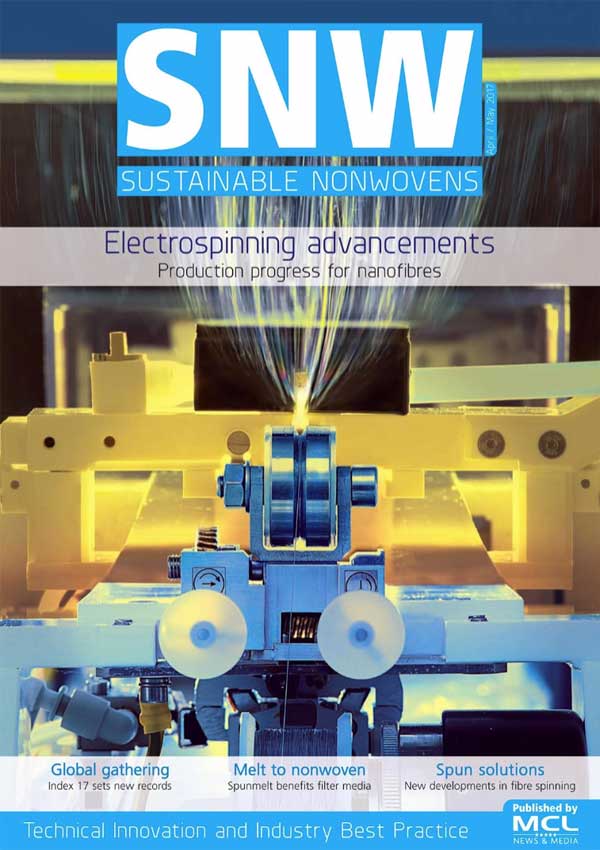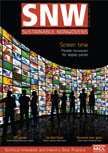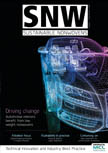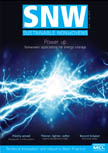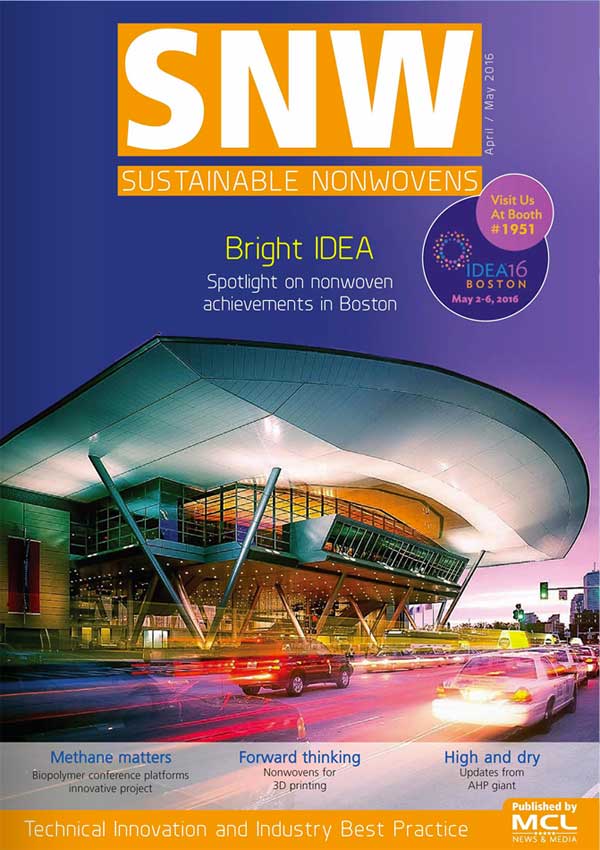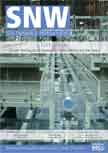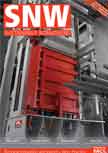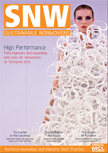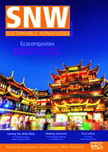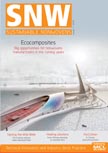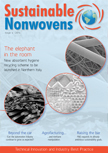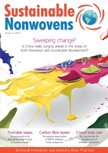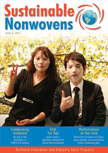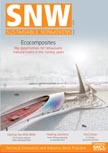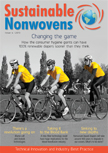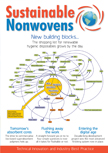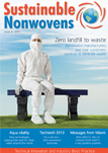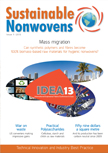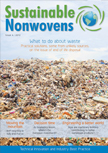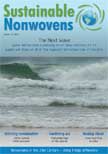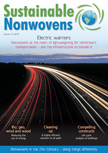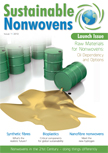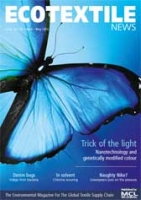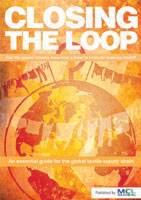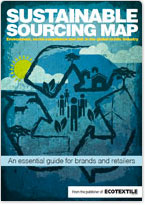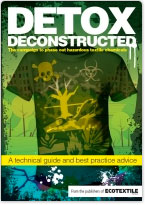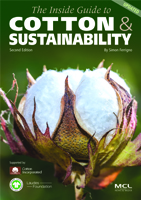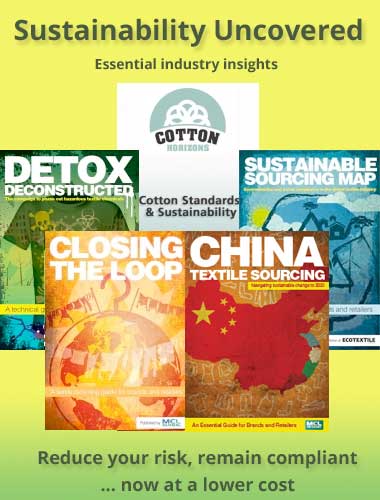Brussels - EDANA, the European nonwovens industry association, has been working closely with the services of the European Commission to find solutions to the continued provision of the essential medical and protective equipment and to any bottleneck in the supply chain in the fight against the corona virus pandemic.
It has also requested European Commission support in working with Member States to ensure that all production facilities where these products are manufactured are kept fully operational in the interest of public health and that the nonwovens industry is recognised as a critical sector.
The letter to the Commission notes that the availability of disposable hygiene and medical products to the general public, hospitals and care homes, is an essential element in the fight against COVID-19. "In these unprecedented times, the Nonwovens and Related Industries are proving to be an essential partner in the fight against the corona virus pandemic," said EDANA general manager, Pierre Wiertz.
Nonwoven protective clothing was widely deployed to deal with previous epidemic scares, including the 2003 SARS outbreak, the wave of Bird Flu that swept through south-east Asia in 2005 and during the Swine Flu panic of 2009, when the demand for face masks, in particular, exploded on a global scale.
"During 2014 and 2015, major manufacturers of nonwoven protective clothing for healthcare workers worked around the clock to meet fresh demand in response to the Ebola threat before it was eventually brought under control using such recognised public health containment measures," the letter says. "Like in the case of the Ebola virus, early identification of patients infected with the Corona virus is not always possible. Healthcare workers are therefore urged to apply standard precautions consistently with all patients – regardless of their diagnosis – at all times. These include basic hand hygiene, respiratory hygiene, safe injection practices and the use of personal protective equipment
In its response, the European Commission confirmed it has created a strategic rescEU stockpiling – a common European reserve - of medical equipment such as ventilators, personal protective equipment, reusable masks, vaccines and therapeutics and laboratory supplies. The Commission are currently collating information about providers’ offers, which we will then share with Member and Participating States.
Personal protective equipment – masks, gloves, goggles, face-shields, and overalls - is vital for hospitals, healthcare professionals, patients, field workers and civil protection authorities. The voluntary Joint Procurement Agreement with Member States (and the United Kingdom and Norway) enables the joint purchase of personal protective equipment. The Commission launched calls for tenders for personal protective equipment on 28 February and 17 March and tenders for additional categories of personal protective equipment with 25 Member States participating.
These first joint procurements have proven successful. As of 24 March, producers have made offers covering the quantities of items requested by the 25 Member States taking part in the procurement. The equipment should be available two weeks after the Member States sign the contracts with the bidders.
As a means of increasing European production capacities of personal protective equipment, the Commission and the European Standardisation Organisations have also agreed that all the relevant European harmonised standards will exceptionally be made freely and fully available for all interested companies. This action will help both EU and third-country companies to manufacture these items without compromising on our health and safety standards and without undue delays.
On 24 March, the Commission also adopted decisions on revised harmonised standards that will allow manufacturers to place on the market high performing devices to protect patients, health care professionals and citizens in general. The revised standards play a pivotal role because they relate to critical devices such as medical facemasks, surgical drapes, gowns and suits, washer-disinfectors or sterilization.
The harmonised standards will cover equipment such as medical facemasks, personal eye protection, medical gloves, protective clothing as well as respiratory protective devices.
Web: www.edana.org
